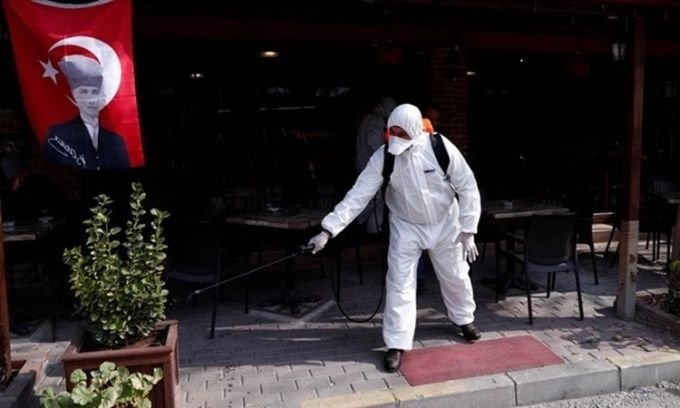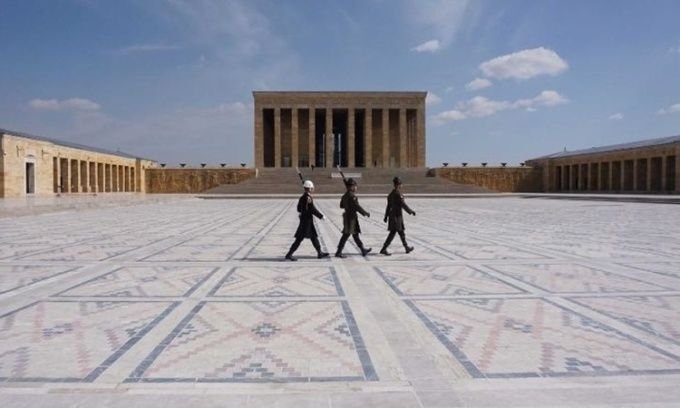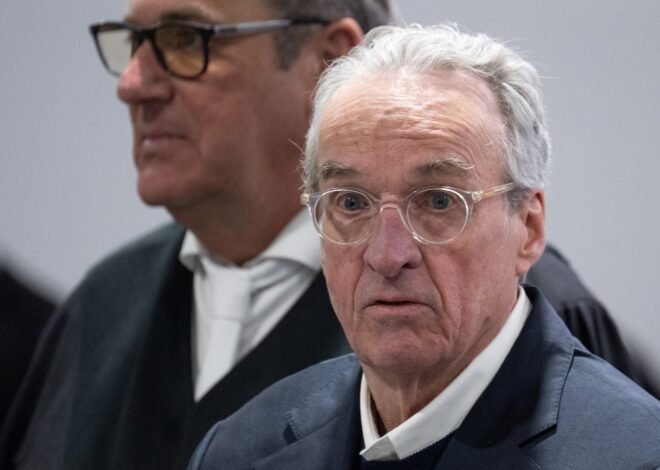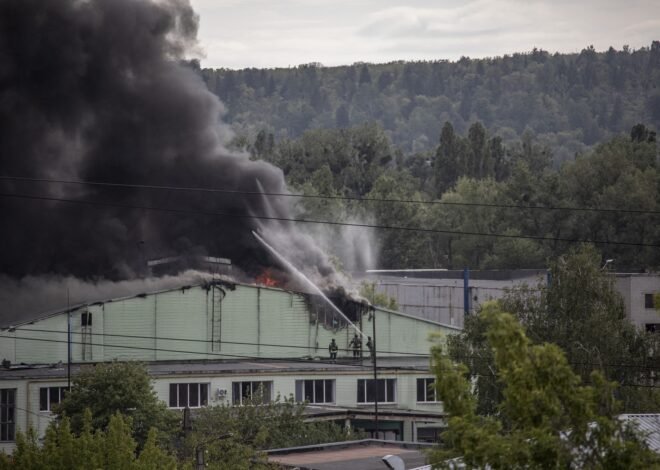
Fighting Covid-19 Turkish style
The Turkish government issued a 48-hour curfew for 31 provinces, affecting three-quarters of the country’s population.
After the initial chaos due to the curfew, President Tayyip Erdogan made a speech to the nation, affirming that Türkiye is strong enough to protect and provide for its people, calling on people to stay home and declaring that Turkey is strong enough to protect and provide for its people. a new weekend curfew.
Medical staff spray disinfectant at a coffee shop in Erdine city, Türkiye.
In efforts to fight Covid-19, experts say Türkiye is going its own way.
But on the contrary, construction sites are still working at full capacity alongside factories and other businesses that do not want to suffer an economic downturn.
Some experts say partial restrictions like Türkiye’s could be successful, as long as those at high risk of vulnerability continue to be protected and those who venture out adhere to measures. appropriate preventive measures.

`This is an alternative strategy,` said Professor Muhammad Munir, a virologist at Lancaster University in the UK, adding that healthy people going out to shop every day are not necessarily a danger.
`80% of infected people have recovered. So, if the people who go out are healthy people with no underlying medical conditions, this is definitely very helpful. The only benefit of the blockade is that it slows down the rate
According to Dr. Jeremy Rossman, honorary lecturer in virology at the University of Kent, partial blockade is only really effective if implemented early, in a country with a low number of cases or the number of cases has reached
`At the level of Türkiye, most countries are applying a complete blockade. Partial blockade can be useful, it can both help keep a part of the economy running and curb the spread of the disease,` Rossman said.
Türkiye is one of the 10 countries with the highest number of infections in the world, with nearly 80,000 cases and the number of new infections per day is regularly above 4,000, however, the death rate is much lower than other places when recorded just under 1,800 deaths and this is curious.
Mausoleum of Mustafa Kemal Ataturk, founder of the Republic of Türkiye, in Ankara, March 23.
The Turkish Medical Association (TMA) said the country’s death statistics do not include cases with a high probability of being infected with nCoV but having negative test results.
`Doctors in our association have reported that even if the CT scan results and clinical symptoms indicate the disease, if the PCR test results are not positive, when the patient dies, they remain unrecorded.`
Health Minister Fahrettin Koca argued that Türkiye’s low death rate, above 2%, is due to its good medical care capacity and treatment regimens unlike other countries.
According to Koca, Türkiye’s approach is different from other countries in that they focus on contact tracing instead of mass testing or testing after clinical signs appear.
They also delayed intubation by using high-frequency oxygen for a longer period of time, which Koca claims produced better results.
In addition, Türkiye also used the antimalarial drug hydroxychloroquine and favipiravir, a Japanese antiviral drug, much earlier than other countries when the outbreak began.
But Professor Munir from Lancaster University is one of many medical experts who oppose the use of antimalarial drugs to treat Covid-19.
`If patients use hydroxychloroquine, they may recover, but after about a year, they will be at high risk of developing heart and vision problems. This is why there is not enough evidence to approve the use of these drugs.`
`We are trying to save lives,` said Dr. Nuri Aydin, director of Cerrrahpasa University Medical School in Istanbul, one of the institutions leading Türkiye’s anti-Covid-19 efforts.
Aydin said that currently, they do not have enough data to announce trial results, but `time will show the real results.`
Türkiye also started using plasma from patients who have had Covid-19 and recovered for those fighting the virus.
The government affirms that hospitals have enough intensive care rooms and no shortage of beds.
In response to the pandemic, Türkiye quickly developed programs to produce and distribute personal protective equipment, not only domestically but also abroad.
The gesture of solidarity and goodwill appears aimed at rebuilding weakened relations between Türkiye and its North Atlantic Treaty Organization (NATO) allies.
Vocational schools in Istanbul and other cities have been turned into factories producing masks and protective gear to serve domestic needs.
People lined up in front of a food store in Istanbul on April 10, before the curfew took effect.
Some schools are responsible for producing face shields and disinfectants, hand sanitizers and other essential hygiene products.
The government is distributing free masks at pharmacies or sending them straight to the homes of people who need them but cannot go out.
Türkiye is easing the burden of the epidemic on those who are off the streets by sending volunteers or police to knock on doors to ensure that anyone at high risk has access to services. that they need.
Switchboards, called `Acik Kapi` (Open Door), were established in all districts.
Serdar Karakus, assistant principal of a school in Istanbul’s Eyup district, and Ugur Uyan, mosque imam, were authorized to receive pensions and transfer them to citizens who requested the service.
`My parents are both elderly. I live in Istanbul. They live in Manatya. They also receive this service where they live because I can’t help because I live far away,` Karakus said.
Sadet Seker, in his 70s, lives alone.
Vu Hoang (According to CNN)


